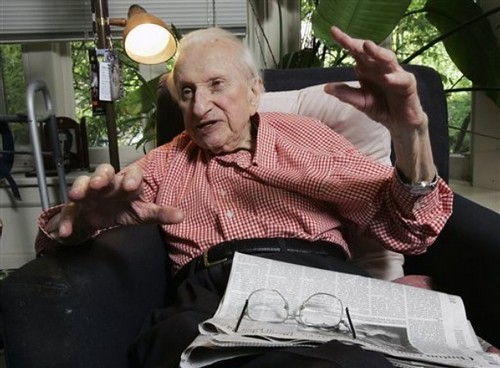 Writer/director Alexander Payne does it again with "The Descendants," his latest film and the first since the wonderful "Sideways." But even moreso than that film, or its predecessors, "About Schmidt," "Election" and "Citizen Ruth," "The Descendants" is grounded in the heavy drama of profound loss and doubt. It might be Payne's weightiest films, and it's one of the best of 2011, with an Oscar-worthy performance by George Clooney.
Writer/director Alexander Payne does it again with "The Descendants," his latest film and the first since the wonderful "Sideways." But even moreso than that film, or its predecessors, "About Schmidt," "Election" and "Citizen Ruth," "The Descendants" is grounded in the heavy drama of profound loss and doubt. It might be Payne's weightiest films, and it's one of the best of 2011, with an Oscar-worthy performance by George Clooney.Clooney plays Matt King, a lawyer, husband, and father of two who lives in Hawaii. King is a descendant of Hawaiian royalty, and the executor of the largest undeveloped piece of land left on one of the Hawaiian islands. But just as meetings are underway with his cousins and relatives to discuss the sale of the land, a business move that would make all of them quite wealthy, King is slapped with a personal tragedy.
Elizabeth, Matt's wife, is critically injured in a sport boating accident. On life support and in a coma, a doctor sits Matt down and makes it clear to him that she will not recover. Matt is instructed to begin telling people, encouraging others to say goodbye to Elizabeth, and start pulling his life together and planning for the future.
The main focus of his life becomes how he will care, alone, for his sassy 10-year-old daughter Scottie and her older and infinitely more rebellious teenaged sister, Alexandra. He doesn't know what they need. He's made it his job to make money for the family, and to keep the girls from having things handed to them. "Give them enough money to do something, but not enough money to do nothing," Clooney's Matt says in one of the film's multitude of clever lines and voiceovers.
Since it wouldn't just be enough to have to break the news of Elizabeth's impending death to his girls, Matt learns from Alexandra that Elizabeth had recently been having an affair and was considering leaving Matt. Through a neighbor, Matt and Alexandra learn the man's name and even track him down to a vacation home he's renting with his family. Matt says he wants to tell the man about Elizabeth's condition and afford him the opportunity to say goodbye like anything else. But is that all he wants out of it?
As with any Payne film, the script is outstanding. Payne has a knack for somewhat quirky characters with unusual backgrounds who are otherwise so completely real and normal in their domestic struggles that his films play like cinema verite with a polish of organic comedy. As with "Sideways," I found myself laughing heartily throughout the film.
But I was also incredibly sucker-punched in the gut by the emotional impact of "The Descendants," so much so that I cancelled going to see another film immediately after this one because I felt I needed time to process and recover.
In addition to the script and the sunny cinematography, "The Descendants" is transcendant due to the acting performances, led by Clooney. I am not on the George Clooney bandwagon, nor do I dislike him. But I tend to feel like Clooney plays some version of himself in all of his films. Here, he's a little bit paunchy and pathetic, and Clooney digs noticably deeper with this film than with anything I've ever scene him in. I feel confident in saying that it is the greatest performance of his career thus far, requiring more emotional depth than any of his other roles and removing Clooney's ability to rely on his rakeish charm. Maybe some won't want him to win another Oscar because he's already plenty rewarded and beloved. I say give it to him; though there are plenty of 2011 films I have yet to see, this performance sets the Best Actor bar in my book.
A lot of attention is also being paid to Shailene Woodley as the tortured teen daughter, Alexandra, and I agree that she is indeed good. Like Clooney here, Woodley is deceptively natural in digging deep on an emotional level. She's not just an entitled teenaged bitch, but a truly troubled, complicated and scared young lady. Her performance, too, is fantastic. And it's worth noting the work of Amara Miller as the young Scottie, every bit Woodley's equal.
"The Descendants" is being labeled a comedy by many, but for me it was a complex drama. Yes, it was pointedly funny in many places, but in that very natural way that we find ourselves laughing in the middle of life's greatest chaoses, tragedies, and most harrowing moments.
As a dad, I was deeply moved by the challenge Matt is faced to rise up to in this story. Am I going to be good enough for my kids? How much of this is my fault? Can I forgive others? Myself? And I left the theatre feeling like what I'd seen was more important than just a little slice of someone's life. It felt a lot like life itself.
4.0 out of 4







